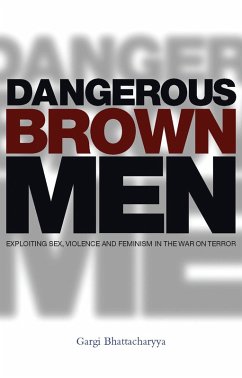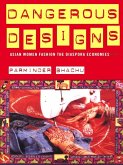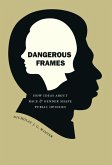Why is the public presentation of the war on terror suffused with sexualised racism?
What does this tell us about ideas of gender, sexuality, religious and political identity and the role of the state in the Western powers?
Can we diffuse inter-ethnic conflicts and change the way the West pursues its security agenda by understanding the role of sexualised racism in the war on terror?
In asking such questions, Gargi Bhattacharyya considers how the concepts of imperialism, feminism, terror and security can be applied, in order to build on the influential debates about the sexualised character of colonialism. She examines the way in which western imperial violence has been associated with the rhetoric of rights and democracy - a project of bombing for freedom that has called into question the validity of western conceptions of democracy, rights and feminism.
Such rhetoric has given rise to actions that go beyond simply protecting western interests or securing access to scarce resources and appear to be beyond instrumental reason. The articulations of racism that appear with the war on terror are animated by fears and sexual fantasies inexplicable by rational interest alone. There can be no resolution to this seemingly endless conflict without understanding the highly sexualised racism that animates it. Such an understanding threatens to pierce the heart of imperial relations, revealing their intense contradictions and uncovering attempts to normalise violent expropriation.
What does this tell us about ideas of gender, sexuality, religious and political identity and the role of the state in the Western powers?
Can we diffuse inter-ethnic conflicts and change the way the West pursues its security agenda by understanding the role of sexualised racism in the war on terror?
In asking such questions, Gargi Bhattacharyya considers how the concepts of imperialism, feminism, terror and security can be applied, in order to build on the influential debates about the sexualised character of colonialism. She examines the way in which western imperial violence has been associated with the rhetoric of rights and democracy - a project of bombing for freedom that has called into question the validity of western conceptions of democracy, rights and feminism.
Such rhetoric has given rise to actions that go beyond simply protecting western interests or securing access to scarce resources and appear to be beyond instrumental reason. The articulations of racism that appear with the war on terror are animated by fears and sexual fantasies inexplicable by rational interest alone. There can be no resolution to this seemingly endless conflict without understanding the highly sexualised racism that animates it. Such an understanding threatens to pierce the heart of imperial relations, revealing their intense contradictions and uncovering attempts to normalise violent expropriation.









